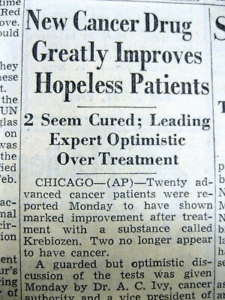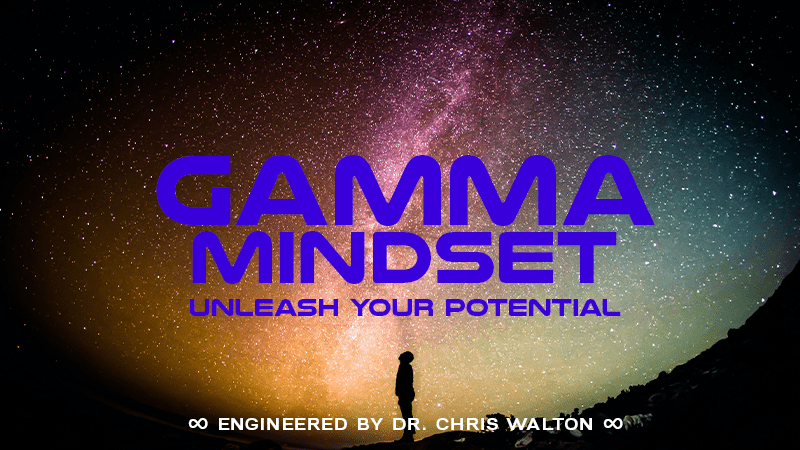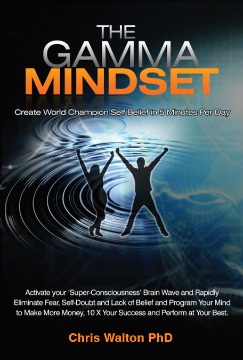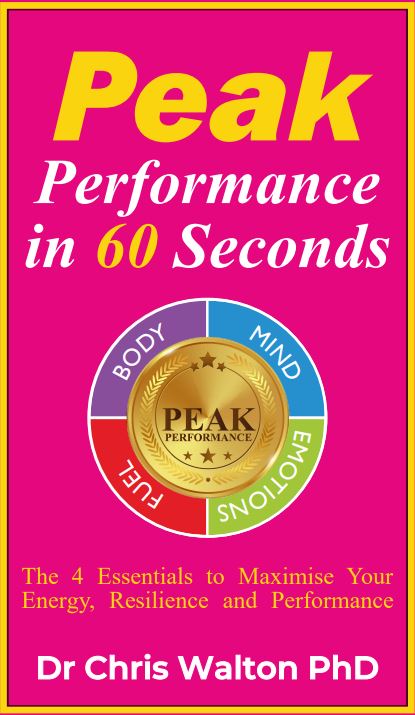Here is a true account about the power of belief that defies any rational explanation.
Mr Wright had just hours to live. He had tumours the size of oranges throughout his body, his lungs were filled with fluid, his spleen and liver were enormously swollen, and he couldn’t breathe without the help of supplemental oxygen.
His physician, Dr Klopfer, had done everything he could using standard medical therapies to try to help Mr Wright—to no avail.
Now that the end seemed near, Mr Wright was willing to consider non-standard treatments.
One of these was a cancer drug, called Krebiozen, which, even though it was still undergoing clinical research, was being hailed by the popular media as a possible wonder cure to cancer.
Dr Klopfer had access to the still-experimental drug, and when Mr Wright begged to be allowed to try it, Dr Klopfer agreed, even though doing so would go against medical protocol.
He gained access to the drug and administered it to Mr Wright on a Friday, and then he left the hospital for the weekend, believing that Mr Wright would be dead by the time he returned on Monday.
But when Monday came, Dr Klopfer was shocked to see Mr Wright up and walking around the ward, as if he had never been at death’s door.
Tests were run, and the results were stunning—the tumours had shrunk to half their original size.
Dr Klopfer continued the Krebiozen treatments, and in less than two weeks Mr Wright was tumour free.
Soon he was released from the hospital, returning home a healthy man.
A couple of months later, the media reported on the preliminary results of the clinical trials of this supposed wonder drug. The verdict—Krebiozen did not appear to be effective against cancer. Mr Wright heard these reports, and soon thereafter he felt unwell again.
Examination revealed that his tumours were back. As his health deteriorated, he was readmitted to the hospital.
Dr Klopfer was at a loss to explain what has happening with Mr Wright. The dramatic disappearance of the tumours and their reappearance seemed to be more than a remission and relapse.
He suspected that somehow Mr Wright’s beliefs were involved, and that, in fact, those beliefs might be the strongest factor in what was happening.
To test this theory, he gave Mr Wright injections of sterile water but told him that it was a “new double-strength version” of the wonder drug Krebiozen.
Again, Mr Wright’s tumours melted away, he regained his health, was released from the hospital and resumed his normal life. Shortly thereafter, there was a lot of press about an official report from the American Medical Association, the most respected and recognized medical professional organization in the United States, declaring unequivocally that Krebiozen didn’t work.
In fact, one headline declared, “Nationwide Tests Show Krebiozin to Be a Worthless Drug in the Treatment of Cancer”.
Upon hearing this news, Mr Wright felt devastated, and, sure enough, a short time later his tumours reappeared and his health declined precipitously. He died two days after being readmitted to the hospital.
Dr Klopfer published a paper about his experience with Mr Wright, concluding that Mr Wright’s optimistic beliefs appeared to be the main factor in the disappearance of his tumours and the regaining of his health, and the loss of that optimism and belief the main factor in their reappearance and Mr Wright’s death.
As this true story demonstrates, our beliefs are exceptionally powerful. And their power is pervasive, affecting us at every level of our being —from our moment by moment feelings about ourselves, to what we think we can achieve and accomplish, to what we expect to receive from those around us and to our perception of the state of the world at large.
Our personal lives conform to our beliefs, and our world reflects back to us our collective beliefs.
That’s why the ancient mystical texts say, in many different ways, that we are not in the world, the world is in us.
We, in effect, create the world through what we believe is possible and probable.
Belief is so powerful an agent of creation that it has become the subject of study in its own right.
For example, current science shows us that our beliefs strongly determine the amount of happiness, inner peace, optimism, and other such qualities we experience, and influence our potential and how well we use our gifts and talents.
Our beliefs largely determine the depth of connection we experience in our relationships and the level of success we can achieve in our work or creative endeavours.
In fact, our thoughts and beliefs are so important to the state of our overall well-being that they are the object not only of psychological study but also of physiological, sports performance, medical and biological research.
As leading neuroscientist Andrew Newberg, MD, says;
“I have come to realise that the study of beliefs may be the single most important quest, both scientifically and spiritually.”
We are at a unique time in human history, at a juncture where insights from quantum physics, the new biology and leading-edge psychology are joining forces to provide us with a deeper understanding of the mind-body relationship.
The integration of this knowledge reveals to us our vast and powerful innate abilities—abilities as yet unrealised or untapped in most of us.
Without overstating the facts, the evidence from the frontiers of research is that when we fully realise the power of our minds and expand our consciousness accordingly, our potential explodes, and is perhaps even limitless.
Our beliefs are the measure of how much we can achieve, how exceptional we can be, how deeply we are fulfilled—and just about everything that determines who we are and the quality of our lives.
If you are interested in developing rock solid self belief and confidence then it starts here;




